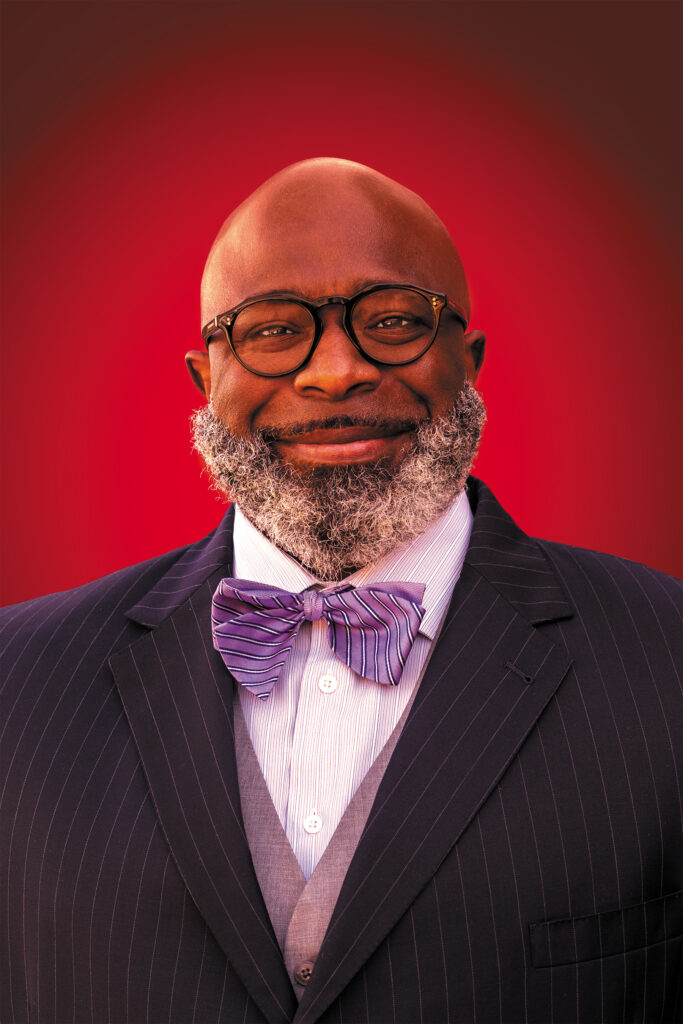A Reflective Humanity

Bart Bailey (Photo: Carter McKinney)
By Bart Bailey
AA’88, BS’90, MBA’99 (Metro)
Owner and principal consultant of Courage to Care, LLC, a consulting firm fostering justice, equity, diversity and inclusion in leadership and business
In the last year-and-a-half, so much has happened — there’s COVID-19 and the impact the pandemic has had on us individually and collectively. Growing social justice movements, many connected to racial trauma. Living in a politically polarized country. Reconciling personal losses.
At the center of it all is the fear of the unknown — and a virus looking for a host … racism looking for a host.
My question to the FDU community is this: how can we use fear, pain and anger to connect with our own deeper sense of humanity?
Sit quietly with your triggers. Explore discomfort — and what’s behind it — arising in you. When or where did you first learn about this discomfort, or experience it? Who told you about it? Why is this a truth for you? Ask: what does this thing mean to me? How is it serving my humanity? How will this serve the collective humanity? How is this connected to the pursuit of happiness, and whose happiness is being pursued?
We need to look out the front window. What do justice, equity, diversity and inclusion look like for FDU and for our collective community? The University’s vision and mission should speak to it, and does in its strategic plan: “Both the University’s vision and mission are rooted in … the opportunities and challenges of today’s interconnected world, and in the values expressed consistently by a collaborative and caring community.” How well does FDU translate this vision into reality for its community members?
Seldom do institutions practice true collaboration and model a caring community. Racism finds its weakness in us as othering, an act to which none of us are immune.
So, what does a collaborative and caring community look like through the lens of justice, equity, diversity and inclusion?
Let’s stop “naming, shaming and blaming” and learn how to speak to what we are observing, feeling, needing (needs both met and unmet), and start making concrete requests.
We have a unique and unprecedented opportunity for truth-telling, and for uncovering the historical trauma baked into the fiber of our country. From this exploration, we can create new normative behaviors that are just and inclusive. We have the ability to create a community that truly believes in the pursuit of happiness. For all.
To do that: acknowledge racism; acknowledge Asian American and Pacific Islander hate; and acknowledge white supremacy. Recognize and own up to truth, then start a dialogue that encourages and supports our collective humanity, liberation for all and a just society. We cannot become a caring community if we continue supporting and fostering the same troublesome systems. We are tasked with creating something we have yet to envision. This requires difficult conversations and leverages anger and fear in the service of our humanity and the humanity of others.